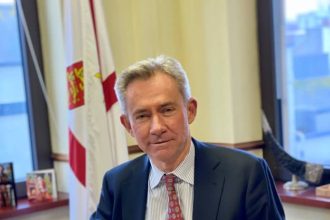The Federal Government’s savings from removing petrol subsidies have risen by more than 500% in the first quarter of 2025, according to a new report by the National Orientation Agency.
President Bola Tinubu’s decision to end the subsidy in 2023 stopped a huge financial drain that cost Nigeria over $84 billion between 2005 and 2022.
The report, titled “Two Years Later: Key Benefits of Subsidy Removal”, shows that the move has boosted government revenue, helping states pay salaries, reduce debts, and fund major projects. Before the subsidy removal, Nigeria was spending most of its income on fuel subsidies and debt payments. Now, the Nigerian National Petroleum Company Limited sends more money to the Federation Account, which is shared among federal, state, and local governments.
In the first quarter of 2025, savings rose from ₦154 billion to ₦836 billion. This allowed states to get ₦15.26 trillion in 2024 from the Federation Account Allocation Committee (FAAC), up from ₦6.16 trillion in 2023. The extra money has been used for key projects, including a ₦20 trillion infrastructure fund, ₦54 billion in student loans (NELFUND), ₦1.5 trillion for agriculture, ₦1 trillion for solid minerals, and the conversion of transport vehicles to Compressed Natural Gas) to lower costs.
For the first time in years, the government is spending more on projects (₦23.96 trillion) than on salaries and running costs (₦13.64 trillion) in the 2025 budget. Before the subsidy removal, many states struggled to pay workers. Now, they are getting more funds and have reduced their debts by ₦1.85 trillion in 18 months.
The report explained that Nigeria was close to bankruptcy because of the high cost of fuel subsidies. Between 2005 and 2022, the country spent $84.39 billion on subsidies—more than 70% of its potential revenue. “The subsidy removal saved Nigeria from economic collapse,” the NOA stated. “It was like a woman in labour—painful at first, but now Nigerians are seeing the benefits.”
The savings have helped start 40 major road projects across Nigeria. Also, despite paying foreign debts, Nigeria’s foreign reserves have grown to $38.9 billion. While the report highlights progress, some citizens still complain about high living costs. However, the government insists the long-term benefits will outweigh the initial difficulties.
“We had to make tough decisions to save the economy,” the NOA said. “Now, Nigeria is investing in real development instead of wasting money on subsidies.” The removal of petrol subsidies has brought more money to the government, reduced debts, and funded critical projects. Though challenges remain, the report shows Nigeria is now on a stronger financial path.











